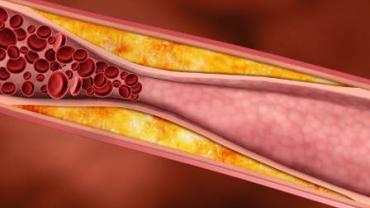
More evidence constantly emerges suggesting that the half-century old “war on cholesterol” has had unintended consequences for health wellbeing and overall quality of life. Considering the crucial role this molecule plays as the raw material for pregnenolone and the multitude of hormones that come from it plus the structural role of cholesterol in building healthy cell membranes and neuronal myelin the effects of serum cholesterol that is too low should not come as any surprise. Lower cholesterol levels in aged populations have been linked to increased all-cause mortality and new research is adding to the body of evidence indicating the cholesterol-lowering effects of statin drugs have effects on the mind as well as the body.
It has been recognized for several years that there may be an association between low cholesterol and violent behavior. In one study cholesterol levels below the median were strongly associated with criminal violence among individuals of the same gender age alcohol intake and level of education. Among individuals who have attempted suicide those who chose violent means had serum cholesterol concentrations 30% lower than those who chose non-violent methods.
On the other hand statin drugs have been linked to reduced aggression in some men. Researchers speculate that this is due to reduced testosterone levels as a downstream effect of the inhibition of endogenous cholesterol synthesis which may disrupt production of all steroid hormones. Interestingly however lower cholesterol levels attained via statin drugs seem to correlate with increased aggression among women. According to the lead author of a study that examined the effects of statins on aggressive behavior “The data reprise the finding that statins don’t affect all people equally - effects differ in men versus women and younger versus older. Female sex and older age have predicted less favorable effects of statins on a number of other outcomes as well including survival.”
The study called the UCSD Statin Study placed 1016 adults (692 men 324 postmenopausal women) on simvastatin (20mg) pravastatin (40mg) or placebo for six months in a randomized double-blind sex-stratified fashion. The results indicated that overall in men statins tended to decrease aggression while they increased it in women. The results were markedly stronger in women with low baseline aggression. For men decreased aggression tracked with declines in testosterone and the correlation was stronger in younger men than in older men (presumably because the younger men may have had higher baseline testosterone levels). Changes in aggression had no relationship to whole-blood serotonin levels which remained unchanged by statin treatment.
Another finding from the study was that “sleep-worsening on statins significantly predicted aggression-increase.” Not entirely shocking of course. Regardless of medication status people tend to have short fuses when they’re not sleeping well. If statin drugs interfere with sleep quality and/or quantity it stands to reason increased aggression may result.
There were two noteworthy participant outcomes in the study. One individual in the pravastatin arm committed suicide. The suicide outcome cannot be definitively linked to the statin of course but it is worth mentioning. The second interesting finding was that one of the female participants dropped out of the study after the first month at her husband’s urging due to “a reported marked adverse behavioral change.” The same individual later contacted the study authors regarding “legal action emanating from the adverse behavioral change during her participation in the study—which reportedly led her to be fired from her job.” Again there may be no way to establish a definitive causal chain between pravastatin and the behavioral change but the possibility cannot be ruled out either—particularly when it occurred during a study designed to uncover links between statin drug use and aggressive behavior.
Regardless of gender differences it should be obvious that a drug intended to reduce synthesis of a substance as fundamental to healthy cognitive function and balanced hormones as cholesterol is would have far-reaching effects on mood thought patterns and behavior. Studies like the UCSD Statin study emphasize that pharmaceutical drugs may not only have unintended consequences but that these consequences may vary greatly from person to person. A drug that is perfectly suitable for one individual may be contraindicated for another. A patient’s unique medical history current circumstances and long-term health goals should be taken into account when weighing the pros and cons of statin drugs—or any pharmaceutical drug or nutritional supplement for that matter.